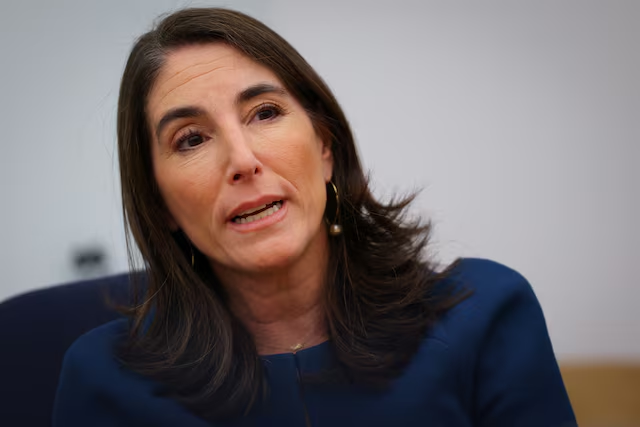Cleveland Federal Reserve President Beth Hammack stated that the Fed needs more time to evaluate how the U.S. economy reacts to the trade policies and tariffs implemented by President Donald Trump’s administration. In an interview at a monetary policy conference at Stanford University’s Hoover Institution, Hammack explained that much of the administration’s policy agenda remains unclear, and it is too soon to determine the full economic effects. She acknowledged the need for clear, convincing evidence before making any policy adjustments but emphasized that the diverse and sweeping nature of these policies means that it could take longer to fully understand their impact.
Hammack noted that while the U.S. economy contracted at a 0.3% annualized rate in the last quarter, analysts are hesitant to interpret this as a definitive sign of economic direction, citing distortions caused by trade policy. She remarked that, despite these challenges, the economy has shown resilience, and the future trajectory remains uncertain. According to Hammack, it is still too early to draw conclusions, and the Fed must carefully analyze incoming data over time.
One area of focus for the Fed is the labor market, where the unemployment rate is at a low 4.2%. However, Hammack and her colleagues acknowledge the risks posed by the administration’s new tariff policies, especially if these lead to price increases or if businesses start to downsize due to weakened demand. Hammack highlighted that firms are holding on to workers, given the challenges they’ve faced in hiring in recent years, but uncertainty remains about how the situation will evolve.
On the issue of inflation, Hammack suggested that tariffs could cause one-time price hikes, though some businesses may adjust prices incrementally as they adjust to new import taxes. If the uncertainty drags on and inflation becomes more persistent, the Fed could be forced to implement tighter monetary policies. Overall, Hammack noted that the current uncertainty over government policies is clouding the economic outlook, raising the risks of higher inflation, slower growth, and a weakening labor market. She concluded that maintaining the current policy stance, which is moderately restrictive, is the most prudent choice for now.
READ MORE:
